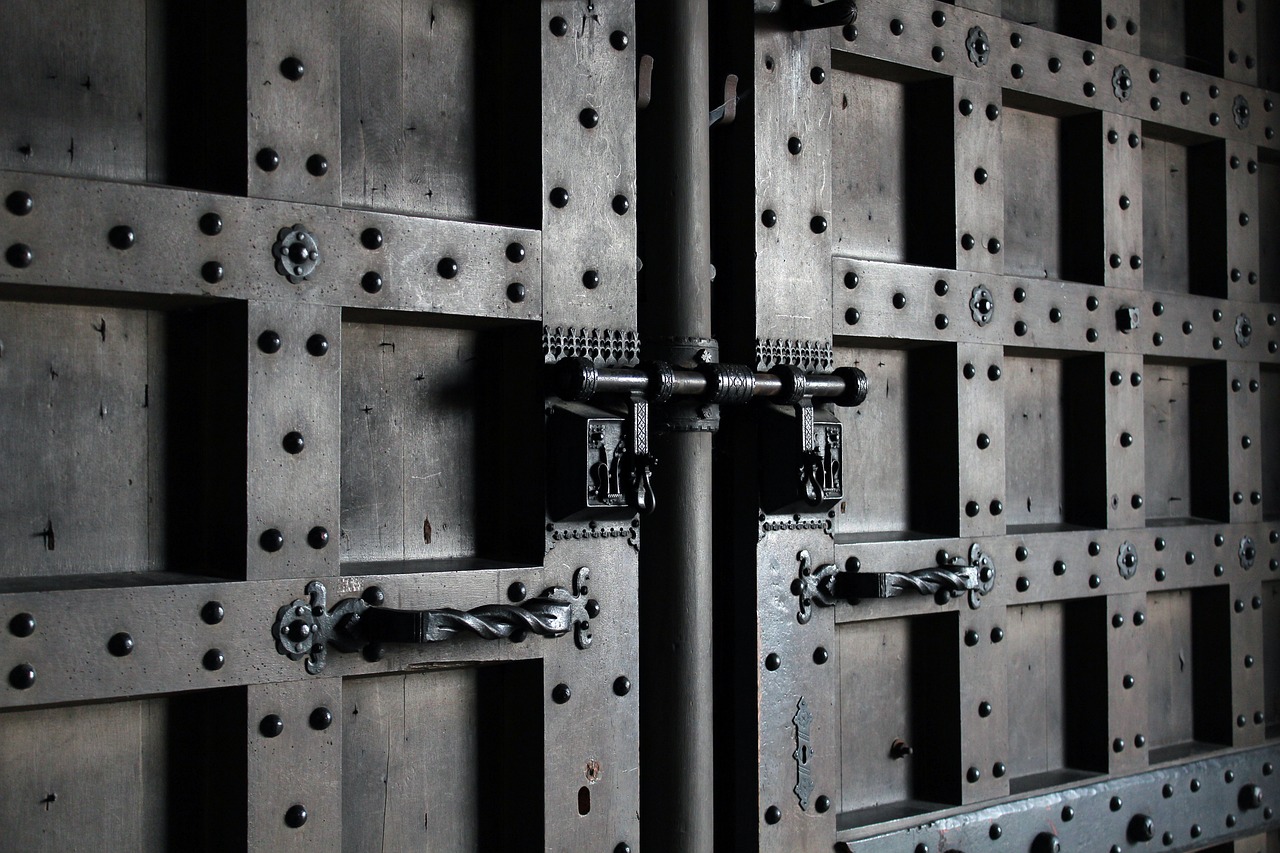Locke's Political Thought in Today's Democratic Society
When we think about democracy today, it’s hard not to acknowledge the profound influence of John Locke, a philosopher whose ideas about government and individual rights continue to resonate in our modern political landscape. His thoughts are not just ancient musings; they are the foundation upon which many democratic societies are built. Imagine a world where our rights are not protected, where the government operates without the consent of the people. Sounds chaotic, right? Locke’s political philosophy offers a blueprint for a more just society, emphasizing the importance of individual liberty and the necessity of a government that serves its citizens. But how do these age-old principles apply to the complexities of today's world? Let’s take a closer look.
Locke's political thought is deeply rooted in the concepts of natural rights and the social contract. He argued that every individual is born with inherent rights that cannot be taken away—rights to life, liberty, and property. These ideas were revolutionary at the time and laid the groundwork for modern democratic theories. Locke believed that for a government to be legitimate, it must be built on the consent of the governed. This means that the authority of the government comes directly from the people it serves. It’s like a contract: if the government fails to protect our rights, we have the right to withdraw our consent. This idea is not just theoretical; it has real implications for how we view our relationship with the state today.
At the heart of Locke's philosophy is the concept of natural rights. He argued that individuals possess inherent rights to life, liberty, and property, which are not granted by the government but are instead part of our human existence. This idea has significantly influenced modern democratic ideals, shaping the way we think about personal freedoms and societal responsibilities. In today’s context, these rights inform discussions about civil liberties and human rights, pushing us to question: are we truly free if our rights are not protected? Locke’s assertion that individuals have the right to defend their liberties against infringement remains a powerful rallying cry in contemporary debates over personal freedoms and government overreach.
Locke argued that the primary role of government is to protect individual rights and maintain social order. This perspective shapes contemporary expectations regarding government responsibilities and accountability. In a democratic society, we expect our leaders to act in the best interest of the people, safeguarding our rights and ensuring justice. If they fail to do so, we have the power to hold them accountable through elections and other democratic processes. This is where Locke’s ideas become particularly relevant; they remind us that government is not an end in itself, but a means to secure our freedoms and promote the common good.
Locke’s idea that legitimate government derives its authority from the consent of the governed is a cornerstone of modern democracy. This principle underpins our electoral systems and the very fabric of democratic governance. It raises important questions: How do we ensure that our voices are heard? What mechanisms are in place to express our consent? In today’s world, where political engagement can sometimes feel like an uphill battle, Locke’s philosophy serves as a reminder that our participation is crucial. If we want a government that reflects our values and priorities, we must actively engage in the political process.
Locke was also a staunch advocate for limiting government power to prevent tyranny. He believed that unchecked authority could lead to oppression, which is why he emphasized the importance of constitutional frameworks and checks and balances. In modern democracies, we see this principle in action through various institutions designed to keep governmental power in check. Think of it like a seesaw; if one side becomes too heavy, it tips the balance. By ensuring that no single entity has absolute power, we protect our rights and maintain a fair society. This idea is more relevant than ever as we navigate issues of government surveillance, civil liberties, and the balance of power.
Locke’s social contract theory posits that individuals willingly agree to form governments for mutual benefit. This agreement is not just a historical concept; it has profound implications for civic engagement and the relationship between citizens and the state in today’s world. When we participate in elections, advocate for policies, or engage in community service, we are honoring this social contract. It’s a two-way street; while we expect the government to protect our rights, we also have a responsibility to contribute to the common good. This reciprocal relationship is essential for a thriving democracy.
Locke's ideas have significantly shaped modern democratic thought, influencing political philosophers and movements across the globe. His emphasis on individual rights and government accountability resonates in contemporary discussions about democracy and governance. As we reflect on the evolution of democratic principles, it’s clear that Locke's legacy continues to inspire movements advocating for freedom, equality, and justice.
Locke's emphasis on individual rights has paved the way for modern human rights discourse. His principles are reflected in current human rights laws and movements, reminding us that the fight for freedom and justice is ongoing. In many ways, Locke’s vision of a society where everyone’s rights are protected is still a work in progress, challenging us to remain vigilant and proactive in defending our liberties.
Despite their influence, Locke's concepts face criticism and challenges in today's society. Contemporary debates surrounding individual rights, government authority, and social justice often call into question the practicality of Locke's ideas. Are we living up to the ideals of liberty and equality that he championed? As we grapple with issues like systemic inequality and governmental overreach, Locke’s philosophy serves as both a guide and a challenge, pushing us to strive for a society that truly embodies his vision.
- What are Locke's main contributions to political philosophy? Locke's main contributions include the concepts of natural rights, the social contract, and the idea that government must have the consent of the governed.
- How do Locke's ideas influence modern democracy? Locke's ideas about individual rights and government accountability are foundational to modern democratic systems, influencing everything from electoral processes to human rights laws.
- What challenges do Locke's ideas face today? Locke's ideas face challenges from contemporary debates about social justice, government authority, and the practical application of individual rights in a complex society.

The Foundation of Locke's Political Philosophy
John Locke, a 17th-century English philosopher, laid the groundwork for modern political thought with his revolutionary ideas about government and individual rights. His philosophy is built on the concept of natural rights and the social contract, which emphasizes the significance of individual liberty as a fundamental principle in society. Imagine a world where your rights are not just granted by a ruler but are inherent to your very existence. This transformative idea was radical for its time and remains crucial in contemporary discussions about democracy.
At the heart of Locke's political philosophy is the belief that every individual is born with certain inalienable rights. These rights include life, liberty, and property. Locke argued that these rights are not privileges bestowed by the government but are intrinsic to every person. This notion challenges the idea of absolute monarchy and promotes the idea that individuals have the right to challenge authority when their rights are violated. In essence, Locke’s philosophy empowers citizens, reminding them that they are not merely subjects but possessors of fundamental rights.
Locke’s concept of the social contract further emphasizes this empowerment. He posited that individuals willingly enter into a contract to form governments that exist to protect their natural rights. This agreement is not just a formality; it is a mutual understanding where the government is granted authority by the consent of the governed. Therefore, if a government fails to uphold its end of the contract—protecting the rights of its citizens—those citizens are justified in withdrawing their consent. This idea of government as a servant to the people rather than a master is the cornerstone of democratic societies today.
To illustrate Locke's foundational concepts, consider the following table that summarizes key elements of his political philosophy:
| Concept | Description |
|---|---|
| Natural Rights | Inherent rights to life, liberty, and property that every individual possesses. |
| Social Contract | An agreement among individuals to form a government that protects their rights. |
| Consent of the Governed | The principle that a government's legitimacy comes from the consent of its citizens. |
| Limitations on Power | The belief that government power should be restricted to prevent tyranny. |
Locke’s ideas encourage active participation in governance. They invite individuals to not only understand their rights but also to engage in civic duties. This engagement is vital in ensuring that governments remain accountable and responsive to the needs of their citizens. In a way, Locke’s philosophy serves as a guiding light, reminding us that democracy is not a spectator sport; it requires our active involvement.
In conclusion, the foundation of Locke's political thought is a powerful reminder of the importance of individual rights and the responsibilities of government. His ideas continue to resonate in today's democratic society, urging us to cherish our freedoms and hold our leaders accountable. As we navigate the complexities of modern governance, Locke's insights provide a framework for understanding the relationship between citizens and the state, reminding us that our rights are not given but are inherent to our humanity.

Natural Rights and Individual Liberty
At the heart of John Locke's political philosophy lies the concept of natural rights, which asserts that every individual is inherently entitled to certain fundamental rights simply by being human. These rights include the right to life, liberty, and property. Imagine living in a world where your very existence is dictated by someone else's whims—it's a terrifying thought! Locke's philosophy offers a refreshing perspective, arguing that these rights are not granted by governments or societies but are innate to every person. This foundational idea has significantly influenced modern democratic ideals, shaping the way we think about individual liberty today.
Locke believed that the protection of these natural rights is the primary purpose of government. In his view, individuals willingly come together to form a government through a social contract, agreeing to abide by certain rules in exchange for the safeguarding of their rights. This contract is not just a legal formality; it is a profound commitment to mutual respect and cooperation. When individuals feel their rights are threatened, they have the right to challenge the government, making it accountable for its actions. In essence, Locke's ideas empower citizens, encouraging them to stand up for their rights and demand justice when necessary.
Moreover, Locke's notion of individual liberty extends beyond mere existence; it encompasses the freedom to pursue one's own happiness and ambitions. This idea resonates deeply in contemporary society, where people strive to express themselves and achieve their goals without undue interference. However, the challenge lies in balancing individual liberty with the collective good. Locke recognized that while individual rights are paramount, they must be exercised with an awareness of their impact on others. This delicate balance is crucial in today's democratic societies, where the rights of one must coexist with the rights of many.
In modern democracies, the influence of Locke's philosophy can be seen in various aspects of governance and law. For instance, many democratic constitutions explicitly protect individual rights and liberties, reflecting Locke's belief that these rights are essential for a just society. Additionally, the concept of civil liberties, such as freedom of speech and freedom of religion, are direct descendants of Locke's natural rights theory. These liberties are not just privileges; they are the bedrock of a vibrant democracy, allowing citizens to express their views, challenge the status quo, and advocate for change.
However, it's essential to acknowledge that the interpretation of natural rights and individual liberty has evolved over time. In today's context, discussions around these concepts often intersect with issues of social justice and equality. Many argue that while Locke's principles laid the groundwork for individual rights, they must be adapted to address contemporary challenges, such as systemic inequalities and discrimination. This ongoing dialogue is vital for ensuring that the ideals of natural rights remain relevant and inclusive in our ever-changing society.
In conclusion, Locke's emphasis on natural rights and individual liberty serves as a powerful reminder of the importance of protecting these fundamental freedoms. As we navigate the complexities of modern democratic life, his ideas encourage us to reflect on our rights and responsibilities as citizens. By understanding and embracing these principles, we can contribute to a society that values and upholds the dignity of every individual.

The Role of Government
When we think about the role of government, it’s almost like pondering the role of a referee in a sports game. Imagine a soccer match without a referee—chaos, right? Players would run rampant, rules would be broken left and right, and the game would devolve into anarchy. Similarly, John Locke believed that the primary purpose of government is to maintain order and protect the rights of individuals. In his view, the government is not just a bureaucratic machine; it’s a necessary entity that ensures the safety and freedom of its citizens.
Locke argued that government exists fundamentally to protect individual rights. This means safeguarding the rights to life, liberty, and property—concepts that are still incredibly relevant in today's democratic societies. Think about it: when you pay your taxes, you're not just giving away your hard-earned money; you're investing in a system that promises to protect you and your rights. In essence, the government acts as a guardian, standing watch over the freedoms we often take for granted.
Moreover, Locke’s philosophy underscores the idea that government should be accountable to the people. This is where the concept of representation comes into play. Citizens should have a say in how they are governed, and their voices should echo through the halls of power. If the government fails to protect the rights of its people, it risks losing its legitimacy. This principle is reflected in modern democratic practices, where elections and civic engagement serve as mechanisms for holding government accountable.
To further illustrate Locke's views, let’s take a look at a simple table that outlines the roles and responsibilities of government according to Locke:
| Role of Government | Description |
|---|---|
| Protection of Rights | The government must protect individuals' natural rights to life, liberty, and property. |
| Maintaining Order | It ensures social order and prevents chaos by enforcing laws and regulations. |
| Accountability | Government must be accountable to the citizens it serves, allowing for representation and feedback. |
| Facilitating Justice | It provides a framework for resolving disputes and administering justice fairly. |
In conclusion, Locke’s vision of government as a protector of individual rights and a facilitator of order is not just a relic of the past; it’s a blueprint that continues to shape our expectations of governance today. We expect our leaders to act in our best interests, to listen to our concerns, and to uphold the very rights that define our humanity. In a world where the role of government is often debated, revisiting Locke's principles can provide clarity and direction in understanding what we should demand from our political systems.
- What are John Locke's main ideas about government? Locke believed that the government's primary role is to protect individual rights and maintain social order.
- How does Locke's philosophy influence modern democracy? His ideas on consent and accountability shape contemporary democratic practices, including elections and civic engagement.
- Why is the role of government important? A well-functioning government protects citizens' rights, facilitates justice, and maintains order, preventing chaos and anarchy.

Consent of the Governed
The principle of is a cornerstone of John Locke's political philosophy, and it holds immense relevance in today's democratic societies. At its core, this idea asserts that governments derive their legitimacy from the approval of the people they govern. Imagine a ship where the crew has the ultimate say on its direction—this is akin to how Locke envisioned a government functioning with the will of its citizens at the helm. Without this consent, any authority is merely a facade, lacking the moral and ethical foundation required to govern justly.
In practical terms, the consent of the governed manifests through various democratic processes. Elections are a prime example, where citizens exercise their right to choose representatives who align with their values and interests. This process is not merely a ritual; it is a powerful affirmation of individual agency. When citizens cast their votes, they are actively participating in shaping the policies and direction of their government. This is why voter engagement is crucial—when people become apathetic, they inadvertently allow others to dictate their lives, undermining the very essence of democracy.
Moreover, the consent of the governed does not solely pertain to elections. It encompasses ongoing dialogue between the government and its citizens. Consider the role of public forums, town hall meetings, and social media platforms where citizens can voice their opinions and grievances. These channels of communication are vital in ensuring that the government remains responsive to the needs and desires of the populace. When citizens feel heard, they are more likely to support their government, fostering a sense of community and shared purpose.
However, the concept of consent is not without its challenges. In reality, many citizens may feel disenfranchised or disconnected from the political process, leading to a crisis of legitimacy for governments. This disconnection can stem from various factors, including socioeconomic disparities, lack of access to information, and systemic barriers that prevent meaningful participation. For instance, marginalized communities often face significant hurdles in voicing their concerns, which raises questions about whether their consent is genuinely represented within the governing framework.
In light of these challenges, it is essential for modern democracies to actively work towards enhancing the consent of the governed. This can be achieved through:
- Education: Providing citizens with the knowledge they need to make informed decisions.
- Accessibility: Ensuring that all individuals have equal opportunities to participate in the democratic process.
- Engagement: Creating platforms for dialogue between citizens and government officials.
Ultimately, the consent of the governed is not a one-time event; it is a continuous process that requires vigilance and commitment from both citizens and their leaders. As Locke emphasized, a government that ignores the will of the people risks losing its legitimacy and the trust of those it serves. In this light, the health of a democracy can be measured by how well it fosters consent among its citizens, ensuring that every voice is heard and respected.
- What is the consent of the governed?
The consent of the governed refers to the idea that a government's legitimacy comes from the approval of its citizens, who have the right to choose their leaders and influence policies. - How does consent manifest in a democracy?
Consent manifests through democratic processes such as elections, public forums, and ongoing dialogue between citizens and their government. - Why is consent important?
Consent is crucial because it ensures that governments remain accountable to the people, fostering trust and legitimacy in the political system. - What challenges does consent face today?
Challenges include disenfranchisement, lack of access to information, and systemic barriers that prevent meaningful participation from all citizens.

Limitations on Government Power
When we think about government, it’s easy to imagine a powerful entity that can dictate our lives. However, John Locke's philosophy reminds us that there should be boundaries to that power. Locke believed that unchecked authority could lead to tyranny, a notion that resonates deeply in today's democratic societies. He argued that the government should be a protector of individual rights, not a violator of them. This principle is crucial because it establishes a framework where the government is held accountable to its citizens.
Locke’s idea of limitations on government power can be seen in the structure of modern constitutions, which often include a system of checks and balances. This system ensures that no single branch of government becomes too powerful. For instance, in the United States, the legislative, executive, and judicial branches are designed to oversee and limit each other's powers. This structure is not just a bureaucratic formality; it’s a vital mechanism to prevent abuse and protect citizens’ rights.
Moreover, Locke emphasized the importance of the rule of law, where laws govern the actions of individuals and the government alike. This creates a society where everyone, including those in power, is subject to the law. The idea is that laws should be clear, public, and applied equally to all. Without this, we risk falling into a state of chaos where the whims of those in power dictate the lives of the populace. It’s a bit like having a referee in a sports game; without rules and someone to enforce them, the game becomes unfair and chaotic.
To illustrate Locke's principles further, let’s consider a table that outlines some of the key limitations on government power:
| Limitation | Description |
|---|---|
| Separation of Powers | Dividing government responsibilities into distinct branches to prevent concentration of power. |
| Rule of Law | Establishing that laws apply to everyone equally, including government officials. |
| Checks and Balances | Creating mechanisms for each branch to limit the powers of the others. |
| Judicial Review | Allowing courts to evaluate the constitutionality of legislative and executive actions. |
In addition to these structural limitations, Locke’s philosophy advocates for the active participation of citizens in governance. This means that individuals should not only be aware of their rights but also be engaged in the political process. Voting, activism, and public discourse are essential components of a healthy democracy. When citizens are involved, they can hold their government accountable, ensuring that it remains a servant to the people rather than a master over them.
Ultimately, the limitations on government power are not just theoretical concepts; they are practical necessities for maintaining a just and equitable society. By adhering to Locke's principles, we can create a political environment where individual rights are safeguarded, and government authority is kept in check. This balance is essential for ensuring that democracy thrives and evolves, adapting to the needs and rights of its citizens.
- What are the main principles of Locke's political thought? Locke's political thought revolves around natural rights, government by consent, and the social contract.
- How do limitations on government power protect individual rights? They prevent the government from overstepping its bounds and infringing on the rights of citizens.
- Why is the rule of law important in a democracy? It ensures that everyone, including government officials, is held accountable to the same laws.
- What role do citizens play in limiting government power? Citizens engage in voting, activism, and public discourse to hold the government accountable.

The Social Contract
John Locke's concept of the social contract serves as a cornerstone of his political philosophy, illustrating how individuals can come together to form a government that reflects their collective will. At its core, the social contract is an implicit agreement among individuals to create a governing body that will protect their natural rights—namely, life, liberty, and property. But what does this really mean in practice? Imagine a group of people on a deserted island; they realize that to survive, they need to cooperate. By agreeing to follow certain rules and appoint leaders, they create a social contract that ensures everyone’s basic needs are met.
In Locke's view, this contract is not just a historical occurrence; it is an ongoing relationship between the government and its citizens. The government is formed to serve the people, and in return, individuals consent to abide by the laws and regulations set forth by that government. This mutual agreement fosters a sense of community and shared responsibility, which is essential for a functional society. However, it also raises questions about the limits of this consent: how much power should a government have, and what happens when it oversteps its bounds?
Locke argued that the legitimacy of any government hinges on its ability to protect the rights of its citizens. If a government fails to do so, or if it becomes tyrannical, individuals have not only the right but the responsibility to withdraw their consent and seek change. This revolutionary idea has inspired countless movements for social justice and reform throughout history, as people have fought against oppressive regimes in the name of their natural rights.
Furthermore, the social contract emphasizes the importance of civic engagement. It encourages individuals to participate actively in the democratic process, whether through voting, activism, or community service. By doing so, citizens uphold their end of the contract and ensure that their government remains accountable and responsive to their needs. In this way, Locke's philosophy remains highly relevant today, as it challenges us to reflect on our roles within society and the responsibilities we hold towards one another.
In summary, Locke's social contract theory is not merely a philosophical abstraction; it is a practical framework that informs our understanding of citizenship and governance. It compels us to consider how we can contribute to a just society while also holding our leaders accountable. As we navigate the complexities of modern democratic life, the principles embedded in Locke's social contract continue to resonate, urging us to engage thoughtfully and actively in the world around us.
- What is the social contract? The social contract is an implicit agreement among individuals to form a government that protects their natural rights.
- Why is the social contract important? It establishes the relationship between citizens and government, emphasizing mutual responsibility and accountability.
- How does Locke's social contract influence modern democracy? Locke's ideas encourage civic engagement and the belief that citizens can challenge unjust governments.

Influence on Modern Democracy
John Locke's political philosophies have left an indelible mark on the fabric of modern democratic societies. His ideas resonate through the corridors of power and in the hearts of citizens who value freedom and justice. Locke's emphasis on individual rights and the social contract has inspired countless movements and thinkers, shaping the way we perceive democracy today. But how exactly do his principles manifest in our contemporary world?
To understand Locke's influence, we must first acknowledge that his vision of democracy is rooted in the belief that every individual possesses inherent rights that must be respected and protected. This idea has morphed into what we now refer to as human rights, which are enshrined in various international treaties and national constitutions. For instance, the Universal Declaration of Human Rights, adopted by the United Nations in 1948, echoes Locke's assertions about the sanctity of life, liberty, and property. It serves as a global reminder that these rights are not just privileges granted by governments but are fundamental entitlements that belong to every person.
Moreover, Locke's thoughts on the social contract have profoundly influenced how we view the relationship between citizens and the state. He proposed that individuals consent to form governments to protect their rights, a concept that is crucial for understanding modern governance. In contemporary democracies, the idea of consent of the governed is foundational, as seen in electoral processes where citizens have the power to choose their representatives. This principle fosters accountability and encourages civic engagement, as people realize that their voices matter.
Interestingly, Locke's influence extends beyond just political theory; it has also permeated social movements advocating for civil liberties. From the abolition of slavery to the civil rights movement, Locke's ideals have inspired activists to fight against oppression and demand equality. His assertion that all individuals are equal under the law has provided a moral compass for those seeking justice in an often unjust world.
However, it’s essential to recognize that Locke's ideas are not without their challenges. In today's society, there is ongoing debate about the balance between individual rights and collective responsibilities. For example, issues such as gun control, freedom of speech, and privacy rights often spark discussions about the limits of individual liberty in favor of the greater good. As we navigate these complex issues, Locke's philosophies provide a framework for understanding the delicate balance between freedom and security.
In summary, the influence of John Locke on modern democracy is profound and multifaceted. His principles continue to inspire not only political structures but also social movements that champion human rights and equality. As we reflect on the state of democracy today, we must consider how Locke's ideas can guide us through the challenges we face, ensuring that the ideals of life, liberty, and property remain at the forefront of our collective consciousness.
- What are John Locke's main contributions to political philosophy? Locke is primarily known for his theories on natural rights, the social contract, and the idea of government by consent.
- How has Locke influenced modern democratic systems? His principles underpin the concept of human rights and the relationship between citizens and the state, emphasizing accountability and civic engagement.
- Are there criticisms of Locke's ideas in contemporary society? Yes, debates continue regarding the balance between individual rights and collective responsibilities, especially in areas like privacy and social justice.

Human Rights and Civil Liberties
When we think about the world today, the term human rights often comes to the forefront of our minds. This is largely due to the foundational ideas set forth by John Locke, who championed the concept of individual rights as an essential part of political philosophy. Locke's assertion that every individual possesses inherent rights to life, liberty, and property resonates deeply in modern society, forming the bedrock of many democratic frameworks around the globe.
Locke's philosophy has not only influenced legal systems but has also sparked movements aimed at securing civil liberties for all. For instance, the Universal Declaration of Human Rights, adopted by the United Nations in 1948, echoes Locke's sentiments by outlining a broad range of rights that every human being is entitled to. This document serves as a global standard, ensuring that the principles of freedom and equality are upheld. It is fascinating to see how Locke's ideas have evolved into tangible rights that individuals can claim today.
Moreover, the implications of Locke's thought extend beyond mere legal frameworks; they also shape the moral and ethical considerations that guide our societies. The idea that rights are not granted by governments but are inherent to every individual leads to a powerful understanding of justice. This perspective encourages citizens to hold their governments accountable, ensuring that their rights are not only recognized but actively protected. For example, movements advocating for gender equality, racial justice, and freedom of expression can trace their philosophical roots back to Locke's emphasis on individual rights.
However, while Locke's ideas have greatly influenced human rights discourse, challenges remain. In many parts of the world, individuals still face oppression and violations of their rights. This reality raises important questions about the effectiveness of current systems in protecting civil liberties. Are we truly living up to Locke's vision? Are governments doing enough to ensure that every individual can enjoy their rights without fear of retribution? This ongoing struggle for rights highlights the need for continuous civic engagement and discourse around these critical issues.
To further illustrate the impact of Locke's ideas on human rights, consider the following table that outlines key rights associated with his philosophy and how they manifest in contemporary society:
| Lockean Principle | Modern Human Rights |
|---|---|
| Right to Life | Right to life and security of person |
| Right to Liberty | Freedom from arbitrary arrest and detention |
| Right to Property | Right to own property and not be deprived of it arbitrarily |
| Consent of the Governed | Right to participate in government through free and fair elections |
In conclusion, Locke's emphasis on human rights and civil liberties remains profoundly relevant in today's democratic society. His ideas challenge us to reflect on the state of our rights and the responsibilities of our governments. As we navigate the complexities of modern life, it is crucial to remember that the fight for rights is ongoing. Just as Locke inspired the thinkers of his time, we too must inspire future generations to uphold and advocate for the rights of every individual.
- What are natural rights? Natural rights are those rights that individuals possess inherently, such as the right to life, liberty, and property, as proposed by John Locke.
- How does Locke's philosophy influence modern democracy? Locke's ideas about government by consent and the protection of individual rights have shaped contemporary democratic practices and principles.
- What is the social contract? The social contract is a theory that individuals consent to form governments for mutual benefit, which is a central idea in Locke's political thought.
- Are human rights universal? Yes, human rights are considered universal, meaning they apply to all individuals regardless of nationality, ethnicity, or any other status.

Challenges to Locke's Ideas
While John Locke's political philosophies have laid a robust foundation for modern democratic thought, they are not without their challenges and criticisms. In today's complex social landscape, many question the applicability and sufficiency of Locke's ideas. For instance, the concept of individual rights has come under scrutiny. Are the rights Locke championed truly universal, or do they reflect a specific historical and cultural context? Critics argue that Locke's framework may overlook the diverse realities of marginalized communities, suggesting that his theories might not adequately address the complexities of modern social justice movements.
Moreover, the principle of the consent of the governed faces significant challenges in contemporary democracies. In an age where political apathy is rampant and voter turnout often fluctuates, one must ask: does the average citizen genuinely feel represented? The question arises whether consent is genuinely informed or merely a formality in a system that can feel disconnected from the populace. This disillusionment can lead to a sense of alienation, where citizens feel their voices are drowned out by political elites.
Another critical challenge relates to the limitations on government power that Locke advocated. While the idea of checks and balances is a cornerstone of many democratic systems, the reality is often more complicated. Instances of government overreach and the erosion of civil liberties raise concerns about whether Locke's vision of limited government is being upheld. As governments expand their surveillance capabilities and enact laws that may infringe on personal freedoms, the question arises: how do we ensure that the government remains a protector of rights rather than an infringer?
Furthermore, the rapid evolution of technology presents new dilemmas that Locke could not have anticipated. The rise of social media, for instance, has transformed the way individuals engage with their rights and the government. While technology can empower citizens, it also poses risks to privacy and freedom of expression. The question of how to balance these competing interests is a modern challenge that tests the limits of Locke's ideas.
In light of these challenges, it's essential to engage in a dialogue about the relevance of Locke's philosophies in our current context. As we navigate the complexities of modern society, we must consider how to adapt and evolve these foundational ideas to ensure they serve all members of our communities effectively. The ongoing debates surrounding individual rights, government authority, and social justice reflect the need for a nuanced understanding of Locke's contributions and their limitations.
- What are Locke's main contributions to political philosophy?
Locke's contributions primarily revolve around the concepts of natural rights, the social contract, and the idea of government by consent.
- How do Locke's ideas influence modern democracy?
Locke's emphasis on individual rights and limited government has significantly shaped democratic frameworks and human rights discourse.
- What are the criticisms of Locke's political thought?
Critics argue that Locke's ideas may not adequately address the complexities of modern social justice issues and the realities of marginalized communities.
- How does technology challenge Locke's principles?
The rise of technology poses new dilemmas regarding privacy, freedom of expression, and the balance of power between citizens and the government.
Frequently Asked Questions
- What are John Locke's main contributions to political thought?
John Locke's main contributions include the concepts of natural rights, the social contract, and the idea that government should exist to protect individual liberties. His philosophies emphasize that individuals have inherent rights to life, liberty, and property, and that governments derive their authority from the consent of the governed.
- How does Locke's idea of the social contract apply today?
Locke's social contract suggests that individuals agree to form governments for mutual benefit. Today, this principle underpins democratic practices, highlighting the importance of civic engagement and the relationship between citizens and the state. It encourages active participation in elections and governance, ensuring that the government is accountable to the people.
- What is the significance of natural rights in modern democracy?
Natural rights are crucial in modern democracy as they form the foundation for human rights and civil liberties. Locke's assertion that individuals possess rights to life, liberty, and property has influenced contemporary human rights laws and movements, advocating for the protection of these fundamental rights across the globe.
- How do Locke's ideas limit government power?
Locke believed that government power should be limited to prevent tyranny. This idea has led to the establishment of constitutional frameworks and checks and balances in modern democracies, ensuring that no single entity can wield unchecked power and that individual rights are protected from governmental overreach.
- What challenges do Locke's ideas face in today's society?
Despite their foundational role in democratic thought, Locke's ideas face challenges such as debates over individual rights, government authority, and social justice. Critics argue that the application of his principles may not adequately address contemporary issues like inequality and systemic injustice, prompting ongoing discussions about the relevance of his theories in today's complex societal landscape.



















